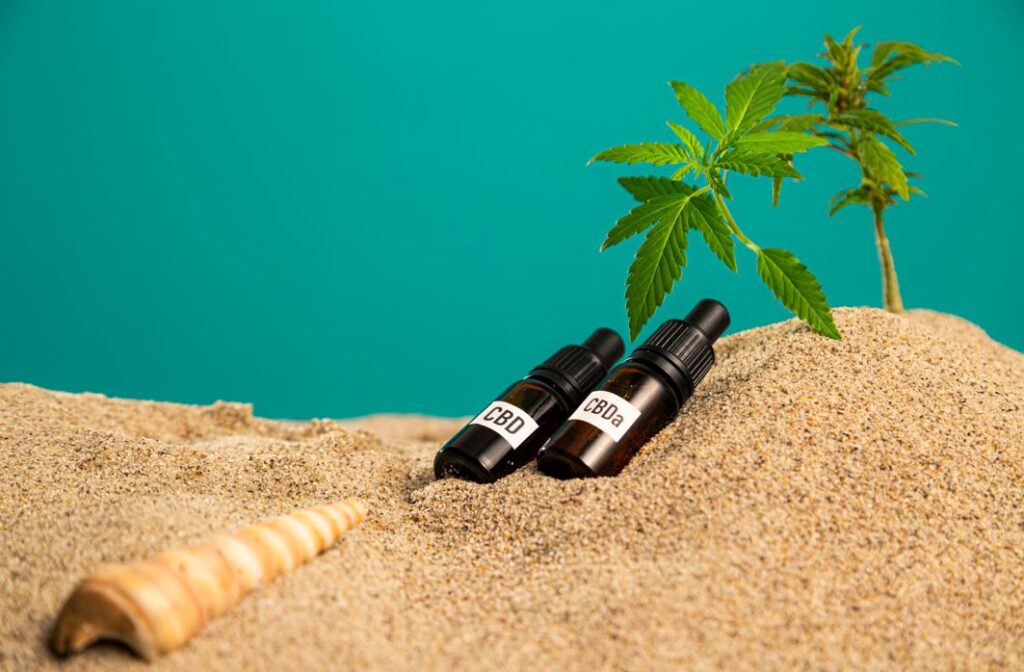CBD (cannabidiol) is one of the more than one hundred cannabinoids in cannabis plants such as hemp and marijuana. In recent years, it has become popular because of its purported health benefits.
Cannabidiol has a broad scope of potential medical applications – due to clinical reports showing its efficacy in treating various conditions. Unlike THC, which can cause euphoria, CBD doesn’t produce a high or intoxication. This makes it an appealing option for people seeking relief from inflammation, pain, anxiety, or other conditions without feeling lethargic or dysphoric.
Regarding legality, CBD is legal on a federal level; however, it is subject to further regulation in some states. You can purchase CBD products online or at local dispensaries. There are multiple ways to take cannabidiol into the body, including
by inhalation of smoke or vapor through the mouth and nose
by swallowing CBD extracts
as a capsule
by rubbing it onto the skin
Cannabinoids interact with receptors in our bodies called cannabinoid receptors. Cannabinoid receptors can be classified into two types: CB1 and CB2.
CB1 receptors are found throughout the central nervous system (brain, spine, and nerves), while CB2 receptors are in the immune and gastrointestinal systems (stomach and intestines).


